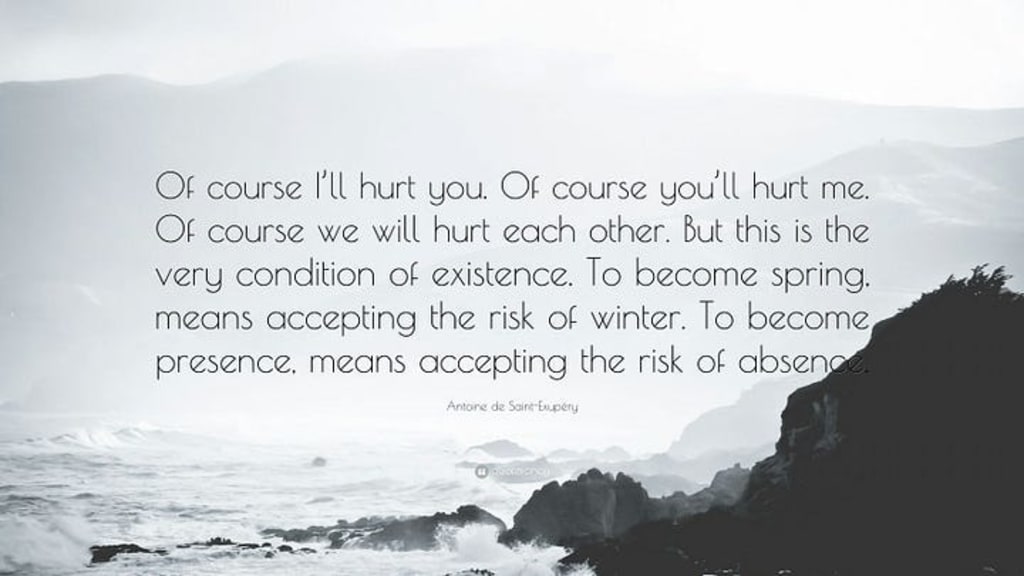Sayang: Embracing Love and Release
The Duality of Love and Letting Go

The Indonesian language is beautiful, and I’ve always yearned to delve into its literature. Just as a superb sentence captivates you, encouraging you to relish it slowly, it should possess a distinct style, with words arranged uniquely by its author, enticing you to replay it in your mind and recall it later.
The Indonesian language is adorned with an array of exquisite words that resonate deeply with its cultural richness. “Sinar,” with its delicate whisper, conjures images of sunbeams gently caressing the earth, infusing warmth into every corner. “Harmoni,” a word cherished for its tranquil essence, embodies the graceful balance found in nature and human relationships alike. “Saudade,” borrowed from Portuguese, finds a home in Indonesian hearts, encapsulating the profound longing for distant memories and lost moments. “Teduh,” reminiscent of a serene forest glade, offers solace in its tranquil embrace, a sanctuary from life’s tumultuous currents.
“Merantau,” steeped in tradition, embodies the spirit of adventure and self-discovery, beckoning wanderers to explore the unknown. “Mimpi,” with its whispered promises, ignites the flames of imagination, inspiring dreams of boundless possibilities. “Tembang,” resonating with the melodies of Javanese poetry, echoes through the corridors of time, preserving Indonesia’s rich cultural heritage. And “Rindu,” with its tender embrace, speaks of the heart’s yearning for connection, weaving threads of longing into the tapestry of human experience. These words, each a gem in Indonesia’s linguistic treasure trove, evoke emotions and narratives as diverse and vibrant as the archipelago itself.
But “Sayang”, is a special form of love. As someone with words of affirmation, choice of word is both.. a preference and confusion. Why long for fancy words while being in love? Why do we expect sweetness by being in love when all we long for is a simple one? Acknowledgments and something that isn’t one-sided? What if we become parents one day?
Love can be compared to a busy city full of libraries, each relationship being like a unique library. Every moment in a relationship is like a sentence in a book. Some sentences are like the walls of a house, holding everything together, while others are like little details we remember long after. Sometimes love feels sweet, like finding a favorite book, but other times it can be confusing and dull. As we go through love’s ups and downs, we learn from our experiences and shape the story of our relationships.
But then, what’s next?

There’s this song called the Apartment We Won’t Share.
About a love that’s always an almost. About a relationship that’s always between an “are they..” and “will you” and never a “let’s.”
In most relationships, of course lovers would call each other “sayang.” But what’s next?
In Indonesian and Malay cultures, the term “sayang” carries a profound duality, embodying both affection and sorrow. It serves as a tender expression of endearment, akin to “darling” in English, while also encapsulating a sense of loss and regret.
“Sayang” represents the complexity of human emotions, intertwining the joy of love with the pain of separation. It’s the whispered “I love you” amidst the recognition of parting ways, the morning greeting that transforms into an evening farewell.
Learning to love and leave simultaneously is a profound journey depicted through “sayang.” It invites introspection into the nature of attachment and detachment, urging individuals to find resilience amidst heartache.
Loving the spring despite the risk of winter is a metaphor for embracing love despite its inherent uncertainties and potential for heartache. Just as spring symbolizes new beginnings, growth, and renewal, love brings warmth, joy, and the promise of a brighter future. However, like winter’s chill, love also carries the risk of coldness, disappointment, and loss.
Choosing to love despite this risk is a courageous act of optimism and vulnerability. It’s an acknowledgment that the beauty and fulfillment found in love are worth the potential pain of its eventual end. Just as the beauty of spring makes the harshness of winter bearable, the joys of love make the challenges and uncertainties worthwhile.
However, there comes a time when the struggle outweighs the reward, and it becomes necessary to let go. Knowing when to keep fighting and when to let go is a deeply personal and complex decision. It involves introspection, honesty, and a willingness to confront uncomfortable truths.
Sometimes, holding on to love means enduring temporary hardships or working through difficulties together. Other times, it means recognizing when a relationship has run its course and bravely choosing to move forward separately. It’s about listening to your intuition, honoring your own needs and boundaries, and finding the courage to make difficult decisions for the sake of your own well-being and happiness.
Ultimately, the decision to keep fighting or let go is a deeply personal one, guided by love, self-awareness, and a commitment to personal growth and fulfillment.
The decision about whether to hold onto an apartment that was once shared but now won’t be is deeply emotional and practical. It’s about reconciling memories of the past with the realities of the present and future.
On an emotional level, letting go of an apartment that holds shared memories can feel like saying goodbye to a chapter of life. It’s about releasing the attachments and sentimentality associated with a space where love once flourished. This process can be painful and often involves grieving the loss of what was once envisioned as a shared future.
Practically, keeping the apartment might serve as a reminder of past happiness, but it can also represent financial and logistical burdens. Maintaining a space meant for two when only one person occupies it can be costly and impractical. It may hinder the ability to move forward and create new experiences.
Ultimately, the decision to keep or let go of the apartment depends on individual circumstances and priorities. It involves considering factors such as financial feasibility, emotional readiness, and the desire for closure and a fresh start. It’s about finding a balance between honoring the past and embracing the possibilities of the future, even if it means saying goodbye to a physical space that once symbolized love and togetherness.
—
The Indonesian language is beautiful, and I’ve always yearned to delve into its literature. Just as a superb sentence captivates you, encouraging you to relish it slowly, it should possess a distinct style, with words arranged uniquely by its author, enticing you to replay it in your mind and recall it later.
Loving someone is never a waste.
It means you’ve truly felt how it is to be human.
But it also means accepting the beautiful risk that comes with it. The dull and the boring. The hurtful and the fights.
Love is about two individual growths at one shared space.
The peace found in breaking up and falling in love again lies in the renewal and growth that come from embracing change and new beginnings. It’s about finding solace in the realization that endings are often the catalysts for new opportunities, allowing individuals to rediscover themselves and forge new connections.
Conversely, the beauty of fighting for a love worth fighting for resides in the depth of commitment, resilience, and devotion that it entails. It’s a testament to the strength of the bond shared between two individuals, as they navigate challenges, overcome obstacles, and emerge stronger and more connected on the other side. Whether it’s the serenity of letting go or the passion of holding on, both experiences offer profound lessons in love, resilience, and the enduring capacity of the human heart.
Because for the rest of our lives, it’s not about the right person, it’s not about the right love.
It’s about a choice with whom we’d be fighting our hearts.
You can never fill anyone’s empty glass, so why not we just talk about it for the rest of our lives?
About the Creator
Esha Taylor
I'm a lover of good books, classic movies, and well-written shows (as well as some pretty cheesy ones, to be completely honest).






Comments
There are no comments for this story
Be the first to respond and start the conversation.